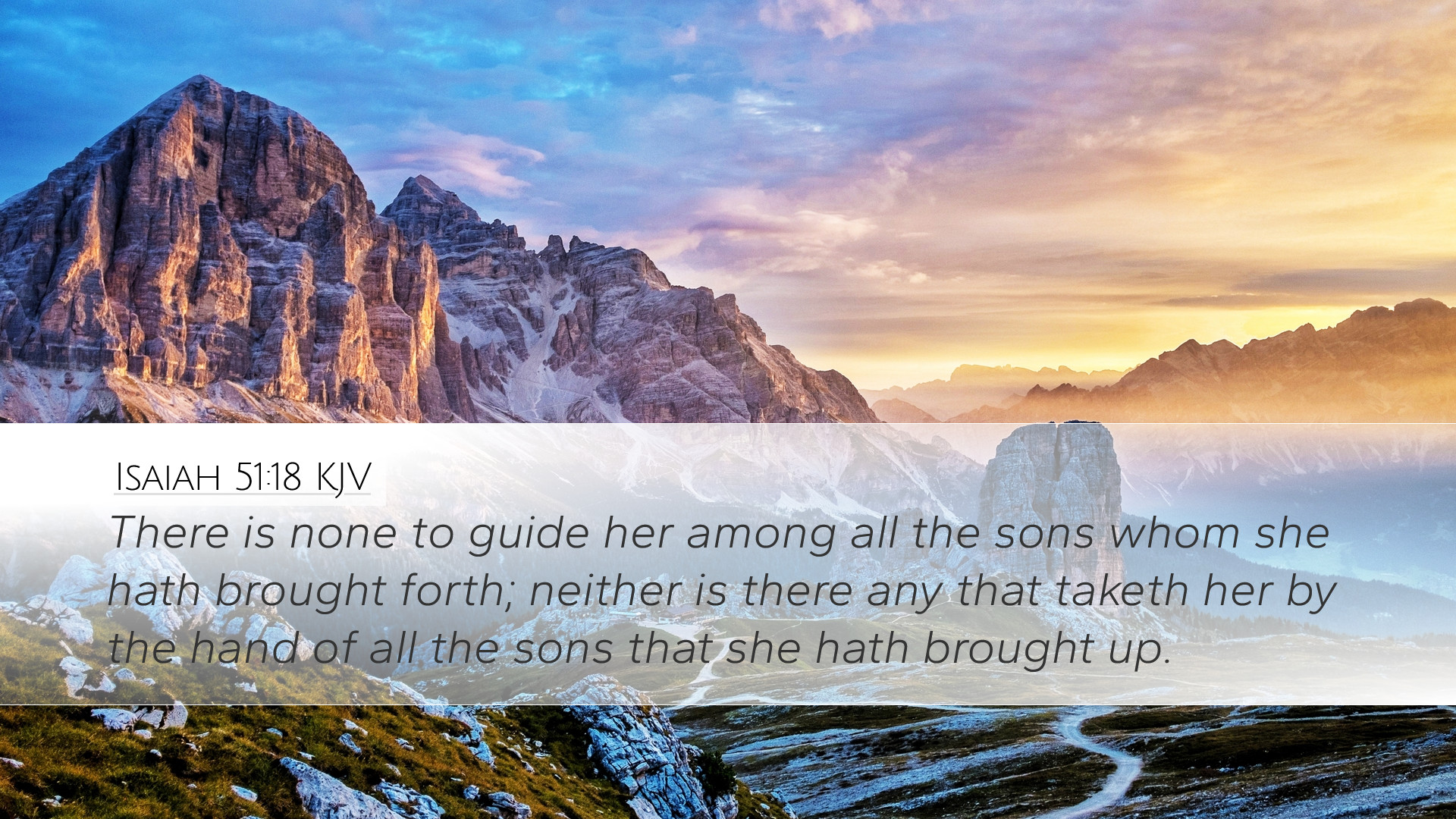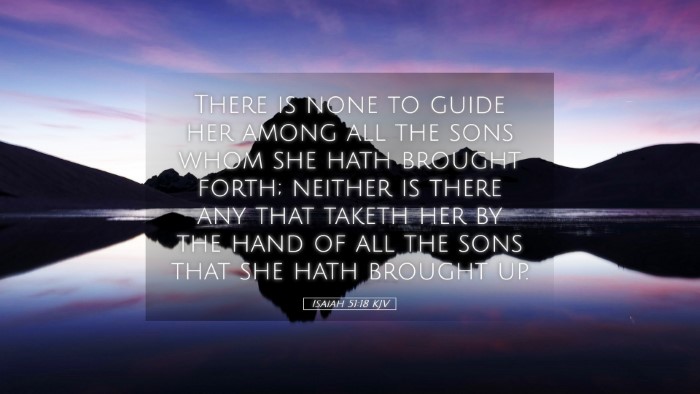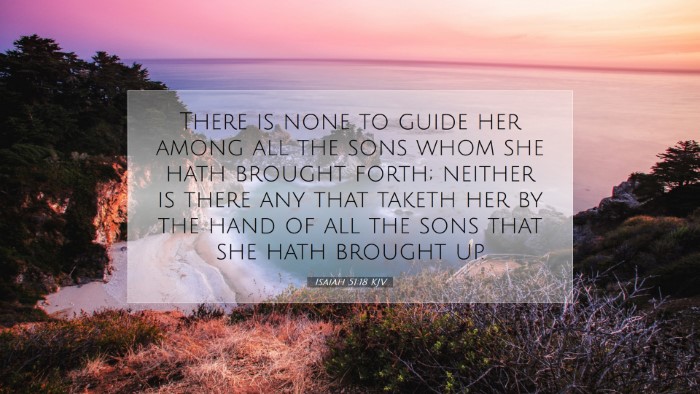Commentary on Isaiah 51:18
Verse: Isaiah 51:18 (ESV) - "There is none to guide her among all the sons she has borne; there is none to take her by the hand among all the sons she has brought up."
Contextual Overview
Isaiah 51 is part of the larger section of the Book of Isaiah that speaks to the comfort and restoration of Israel. In this particular verse, the prophet is addressing the plight of Zion, representing God’s people as a woman in distress, or a mother who has lost her children. The verse conveys a sense of abandonment and helplessness faced by the people of Israel during their exile.
Thematic Exploration
This verse encapsulates themes of guidance, loss, and the search for leadership amidst suffering.
1. Absence of Guidance
Matthew Henry points out that the absence of a guide metaphorically signifies the spiritual leaders who should have been present to direct the people. The same applies to the moral and spiritual guidance that society often lacks during crises.
Albert Barnes elaborates on the imagery of mother Zion lamenting the lack of leadership. In moments of despair, this absence is magnified, leading to feelings of hopelessness and desperation among the people.
2. The Distress of Zion
Adam Clarke emphasizes how the verse illustrates the sorrow of God's people who feel forsaken. He suggests that the maternal imagery is deliberate, as it portrays the deep love and commitment that God has for His people, despite their current suffering.
- The lament of Zion represents the collective grief of a people estranged from God.
- The metaphor of motherhood suggests a bond that is profoundly intimate and yet painfully conflicted at this moment.
3. The Role of Leadership
The absence of guides implies a deeper spiritual neglect. Pastors and theologians can draw parallels from this striking imagery in Isaiah and reflect on the current state of spiritual leadership in their communities.
- What is the role of leaders in times of societal turmoil?
- How can the Church address the emotional and spiritual crises faced by its members?
Theological Implications
This verse amplifies layers of theological significance relevant to contemporary experiences of faith:
- Divine Absence: It raises questions about God's presence in times of suffering. Though He may appear distant, faith calls believers to remember His promises.
- The Role of the Community: The community must bear the burden for one another, reflecting the need for solidarity and support in faith.
Pastoral Applications
Steps towards healing and guidance in the church context can be derived from this verse:
- Encouraging communal support that empowers individuals who feel lost.
- Addressing the emotional pain in sermons and teachings that acknowledge suffering, reflecting God’s empathy.
- Pursuing a holistic approach to spiritual health, where leaders are accountable to nurture both the body and spirit of their congregation.
Conclusion
Isaiah 51:18 is a poignant reflection on the human condition, particularly the sense of abandonment and the dire need for guidance. By understanding the suffering of Zion, pastors, students, and theologians can address the important question of how we can be instruments of God’s guidance in a world where many feel lost. Through this lens, not only can spiritual leaders become bearers of hope, but the church as a whole can embody Christ’s unwavering love, especially in moments of despair.


